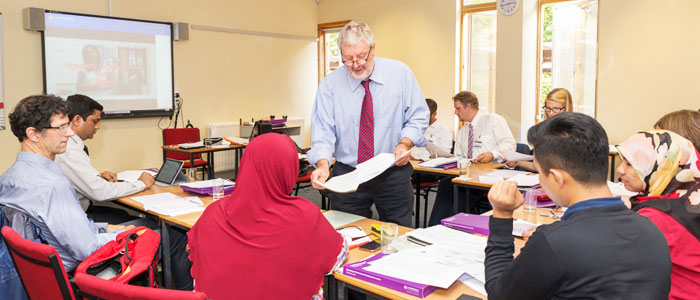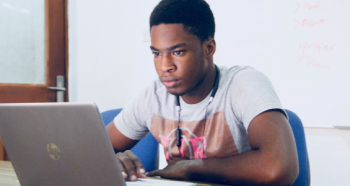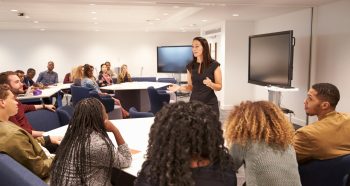Our Cambridge Schools Conferences this year, in Cambridge (September) and Dubai (December) will address the theme “Education fit for the future – planning for a changing world”.
The world has of course never stopped changing, including in ways hard to predict, so what particular changes have we in mind here? These ones in particular, which are prominent in our times and present immense challenges for education ministries, schools and educators:
- The shrinkage of low- and middle-skill level employment in most societies, coupled with often high demand for (and scarcity of) people who can think creatively, work collaboratively, take responsibility, handle uncertainty and challenge. I heard this latter problem contextualised in Malaysia recently as: “our greatest occupational skill shortage is senior executive management”.
- The falling away of jobs for life, as economic change accelerates and employment structures are liberalized, and the growing risk that the specific skills and knowledge taken from full-time education will not last for a (lengthening) working life. Even Japanese companies are cutting back lifelong employment, and most new hires in France are on fixed-term contracts.
- The rise of digital technology, in at least two important senses: the requirement for high levels of digital competence in a wide range of occupations; and the disruption/enrichment of traditional models of learning and assessment.
- 21st century globalization, in which an increasing number of us compete for our jobs with people in other countries, work across borders, and struggle with problems that no country in isolation can solve.
We work in 160 countries, and in more than 30 countries we work particularly closely with national education authorities. I frequently visit schools and meet education officials all over the world and would struggle to think of any country where dealing with these challenges through reform and improvement of education is not seen as vital. And I cannot think of any instance of a country, even amongst the “highest-performing jurisdictions” as judged by international standardised assessments, where these challenges are not seen as daunting.
You may have been enjoying, as I have, the current BBC2 Documentary series, “Are our kids tough enough?”, which implants five Chinese teachers in a British school near Basingstoke, in an experiment which purports to investigate whether “Chinese teaching methods” will help British teenagers learn more. It has much entertainment value and offers some food for thought.
However, effective solutions will never be found by transferring one salient aspect of an education system – in this case a highly caricatural take on Chinese pedagogy – from one context and implanting it another. Failure is certain, not only because of the importance of cultural context – a point the documentary makes graphically and amusingly – but also because education needs to be understood as a system of interdependent parts: pedagogy, curriculum and assessment. To be successful, the infusion of new technology into the classroom, or attempts to strengthen development of “21st century skills,” need to address all three components in a coherent way. I stress this point, because so often we hear strident prescriptions for improvement which focus, precisely and naively, on changing just one important part of the system: be it making the exams harder or giving every student a tablet.
One of the most promising areas to explore at our conferences will be how digital technology can provide new kinds of evidence of learning and gaps in learning, support new ways of learning, enable teachers to focus more effectively on individualised support to students, and improve aspects of high-stakes examinations, which are so topical around the world at this time of year.
We will look at how curriculum, teaching and assessment can be realigned to shift emphasis towards deep learning and transferable skills. We will consider what “collaboration” means in an educational context, one of the many areas we have been researching of late at Cambridge Assessment, and what can be done in terms of teaching and assessment to foster collaborative skills.
Another big question to grapple with, is what can schools do which will equip students as life-long learners, able and motivated to master new knowledge and skills as they take control of their own lives and livelihoods in an age of uncertainty. Are there specific “learning skills” which can be learnt at school and used throughout life? There are of course, but how to organize and encourage the learning of them is a complex challenge.
These are hard questions which defy simplistic answers. At our Cambridge conference in September, we will host educators from 49 countries, and this diversity is crucial. Where most of these teachers can find common ground on a set of approaches which could be applied and adapted successfully to each of their different cultural contexts, we can start to talk with some plausibility about “best practice”.
Appreciation of cultural identity, and respect for the uniqueness of the individual learner, are not flimsy romantic concepts to be fed to the shredder of data-driven globalised standard solutions. They are mature values which distinguish unchanging fundamental aspects of what we are, from the novel, rapid, and to some extent global changes in train around us. We need to face up to the latter while remaining true to the former.





